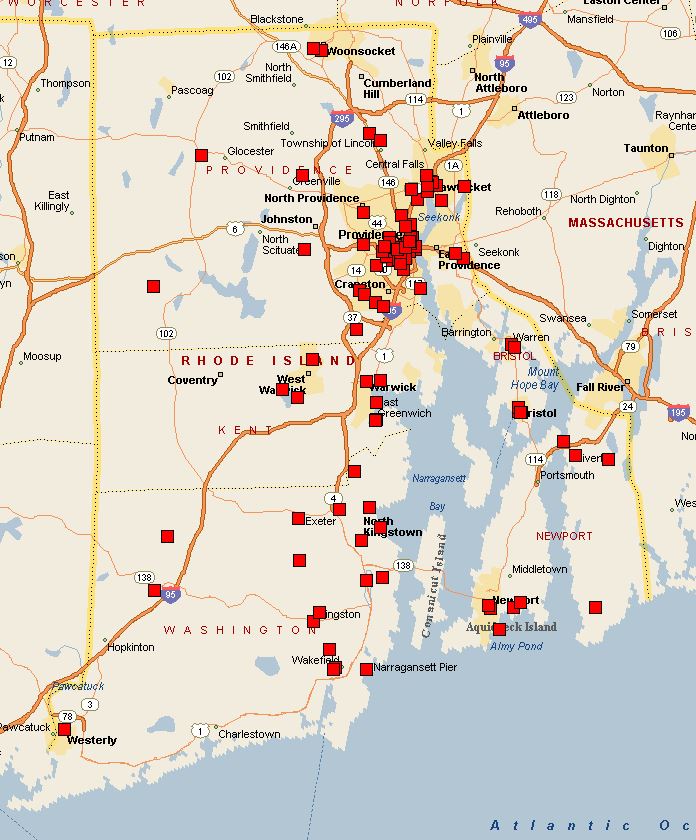Guest Post from ONE Neighborhood Builders — The Resident Advisory Council (RAC), a group of 16 residents of Central Providence created by ONE Neighborhood Builders, has awarded $100,400 in Community Impact Fund grants to 21 businesses and organizations.
The grants, of up to $5,000 each, are to be used to support creative, community-driven projects that support the goals and objectives of Central Providence Opportunities, a collective-impact initiative to improve economic mobility for residents in the nine neighborhoods located in the 02908 and 02909 ZIP codes.
The RAC took about a month to review and score the grant requests before awarding them in this first funding round. In total, $200,000 has been designated for the Community Impact Fund, and the remaining funds will be awarded in future rounds.
Some of the projects funded would pay for: fencing at Naili Home Childcare on Waldo Street; the purchase of tools to expand the selection of library items that can be borrowed through PVD Things; beautification projects at William D’Abate Elementary School; a community healing and storytelling project from the Wilbury Theatre Group called “Capture the Block”; a job training program for formerly incarcerated people from Garden Time Inc.; and a program called “Museums For All,” by a group called Stages of Freedom, which will help young people from the two zip codes explore race and culture and attend museums at discounted rates.
Shelley Peterson, a member of the RAC, said the grant process “was something that was done by residents, for residents and businesses, so this was a really great way for us to advocate for our neighborhoods.” Peterson pointed to the diverse nature of the RAC and how the group represents the community’s needs and interests.
“I think the RAC was well chosen,” Peterson said. “They created a group that was extremely diverse. … And not only by identity, age, gender, etc., but also by occupation—some of us are educators, students, business owners, and neighborhood volunteers. The wonderful part that brings us all together is that we really care about what happens in our neighborhoods.”
“Their perspectives are unique and sometimes what us older RAC members don’t necessarily think of—that point of view from a young adult,” Peterson said of the Classical High School students. “I think it’s wonderful, and I appreciate their experiences and opinions as partners in this.”
Lumi described her experience as “eye-opening.” She said it required her to conduct a lot of research and participate with neighborhood residents in a way she hadn’t before.
“I feel really good,” she said. “I feel like I helped out my community and the people who are living here.”
She said her sister had always been more of an activist and encouraged her to apply for the RAC. But it didn’t take much convincing.
“While I was growing up, I went to a pretty privileged school, like a private school,” she said. “And so I just always saw the disparities between where I live and where other people live, who were my classmates. And I felt it’s my responsibility to give back.”
Her sister, Demi, said the RAC serves dual purposes: It addresses the needs of the community, and it brings people together.
“I feel like these projects are going to give us a chance to get to know each other better,” she said. “I just want more events where we can work on building a tight-knit and supportive community.”
One project that really spoke to her is called “Capture the Block: Community Healing in Storytelling,” which aims to “bring the community together and create [a] shared space for healing.”
“The pandemic has really had a big impact on our community, especially low-income residents,” Demi said.
“And so having a space for residents to connect, become acquainted, and talk about what we all experienced through this pandemic is crucial.”
###
ONE|NB is the convening entity of the
Central Providence Health Equity Zone, which brings together residents, community organizations, health professionals, and others to address root causes of health disparities, and of the Central Providence Collaborative, which includes more than four dozen community-based organizations, local businesses, residents, and elected officials who work together to improve neighborhood conditions. ONE|NB is the backbone organization of
Central Providence Opportunities, a collective-impact initiative to increase economic mobility for residents in Central Providence. ONE|NB also created
the first free community wireless network in Rhode Island, providing high-speed broadband to about 1,000 users in the Olneyville neighborhood.

